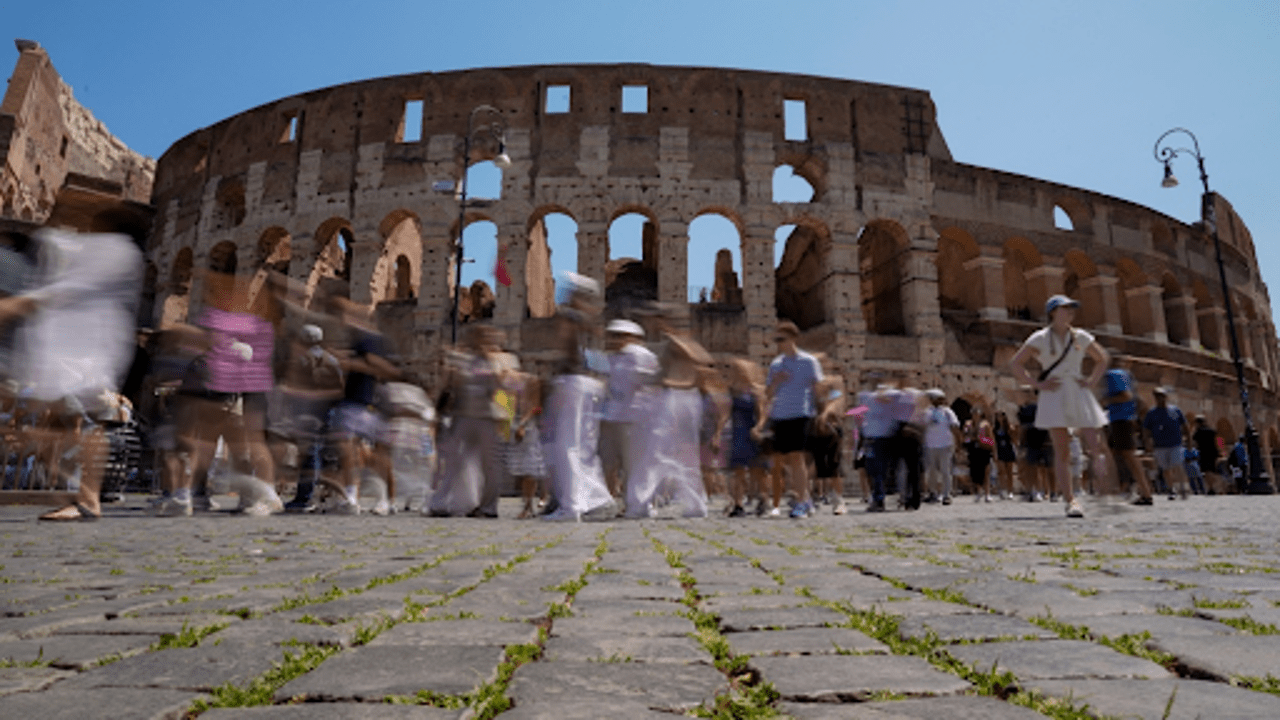
Visitors walk past the Colosseum, in Rome, Tuesday, June 27, 2023. (AP Photo/Andrew Medichini)
ROME – For the first time in two millennia, the iconic Roman Colosseum will host gladiator-style fights, though staged for entertainment, as part of a $1.5 million sponsorship deal with Airbnb. The initiative aims to promote "conscious tourism" while funding educational programs about the ancient amphitheater and its storied history.
Despite the fanfare, some visitors and housing advocates voiced concerns on Thursday. Critics argue that platforms like Airbnb contribute to overtourism and exacerbate housing shortages in cities, making this collaboration a polarizing move.
The partnership, announced on Wednesday, will sponsor the renewal of educational programs at the Colosseum, focusing on its history and the role of gladiators. In a nod to ancient traditions, Airbnb users and their guests can participate in mock gladiator battles after the Colosseum closes on May 7-8. Participants will traverse the same underground passageways once used by gladiators to enter the arena. Applications for this unique experience open on November 27, with winners chosen through a lottery system.
The announcement coincides with the Italian release of Ridley Scott's highly anticipated film Gladiator II. Alfonsina Russo, superintendent of the Colosseum Archaeological Park, defended the sponsorship, calling it one of several partnerships designed to fund restoration and maintenance efforts at the historic site. She noted that similar collaborations, such as Italian fashion brand Tod's multimillion-dollar contribution to the Colosseum’s renovation, have proven successful in the past.
However, critics remain skeptical. Alberto Campailla, coordinator of the nonprofit Nonna Roma, criticized the campaign as an example of "touristification" and accused Airbnb of driving residents out of city centers and suburban neighborhoods.
Some tourists shared similar concerns. Jaime Montero, visiting from Madrid, expressed unease about turning the Colosseum into an "amusement park." He remarked, “Tourism often consumes the soul of cities, and it seems to be happening here too.”
Salvatore Di Matteo, a visitor from Naples, echoed this sentiment, warning against the encroachment of corporations on sacred historical landmarks. "If even monuments like the Colosseum are commercialized, it’s cause for concern," he said.
As the largest amphitheater ever built by the ancient Romans, the Colosseum has stood since the 1st century. Once a hub of entertainment, featuring gladiator battles and animal hunts, it ceased its original function by the 6th century. Now, its enduring legacy faces a new chapter, blending history with modern tourism.















